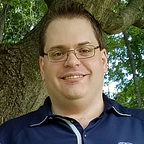The Day the Cops Were Called, Part 2
In November 2021, to my horror, I discovered that my efforts to resolve the February 2020 incident were unsuccessful. My reputation was damaged. After an attempt to address the matter failed, I filed an Affirmative Action complaint in March 2022. This organization had an AA office to handle the case. However, they refused to accept my diagnostic paperwork and to interview my witness.
Instead, the woman lied on the findings report, and they supported her. She had a clear discriminating attitude towards suicide attempt survivors as well as mental health. I made it known I was autistic by self-identifying all through the complaint process. A CEO of this organization, who was not involved in the incident, intervened with the investigation and made a false statement that sealed my fate. In May 2022, I lost the appeal. I was stunned.
They protected her instead of me, the person with legal disability rights. Her blatantly discriminatory actions shattered my long-term reputation with the organization I had devoted almost a decade of involvement with. As you can see, I have to watch what I say because I am not protected by the laws intended to protect us. I have zero reason to believe I will not be targeted with lawsuits if I go public.
The majority of autistic people, including myself, cannot afford to be in legal situations either. So, in hindsight, two autism traits that triggered the incident are important to reflect on: oversharing and missing social cues. Normally, these traits are not so confrontational. Sharing such discrimination related to autism is very important so everyone, not just autistic people, can see the truth and learn from my ordeal. This is our reality.
Oversharing is a two-way process that begins with us eagerly sharing information that, if sensitive, someone else can potentially overreact to. So, there is responsibility for both people in confrontations that I choose to recognize. We, as autistic people, must strive to moderate our behavior to avoid confrontations as much as possible. Make no mistake. This does not mean we mask it to the point of it being adverse to our mental health.
Non-autistic people have the majority of responsibility because overreacting is a willful act that can cause considerable harm. If oversharing started my incident, missing social cues is what made it easier for me to be taken advantage of. We can miss social cues because we do not always perceive them in real time or are familiar with them because of our thinking. It is like being blindfolded in a lion’s den.
I was very lucky. If the woman had contacted law enforcement instead and claimed I had “aggressive tendencies,” I could have been put in a situation where my life was at risk. There is another big catch with my case. I was diagnosed only six months before my incident happened. Yet, as I point out in my article, The Scattered State of Autism Research, publicly available autism research is so inconsistent that it is responsible for causing serious problems in our lives.
If I had understood autism as much as I do now, which is largely without the help of certified professionals, three to four incidents of discrimination would have been avoided. The longer it takes for mental health professionals to correct this problem, the more harm their lack of consensus will continue to do. In some cases, like Osaze Osagie’s, our lives can be at risk, too.
#LetThatThinkIn
Welcome to the next Autism Experience.
A Trait So Misunderstood It Can Be Tragic.
